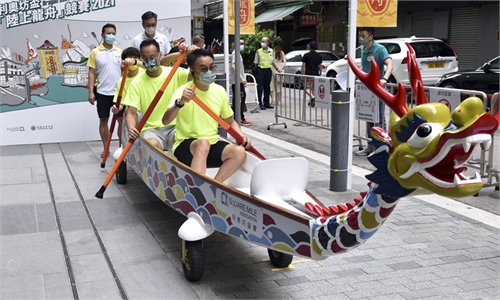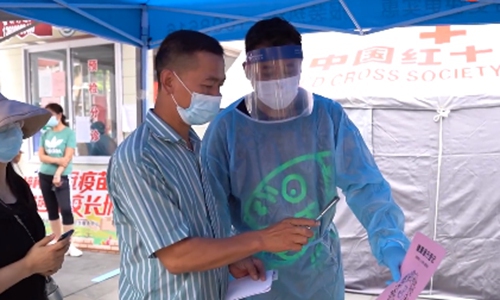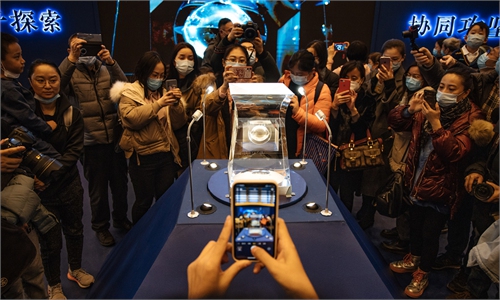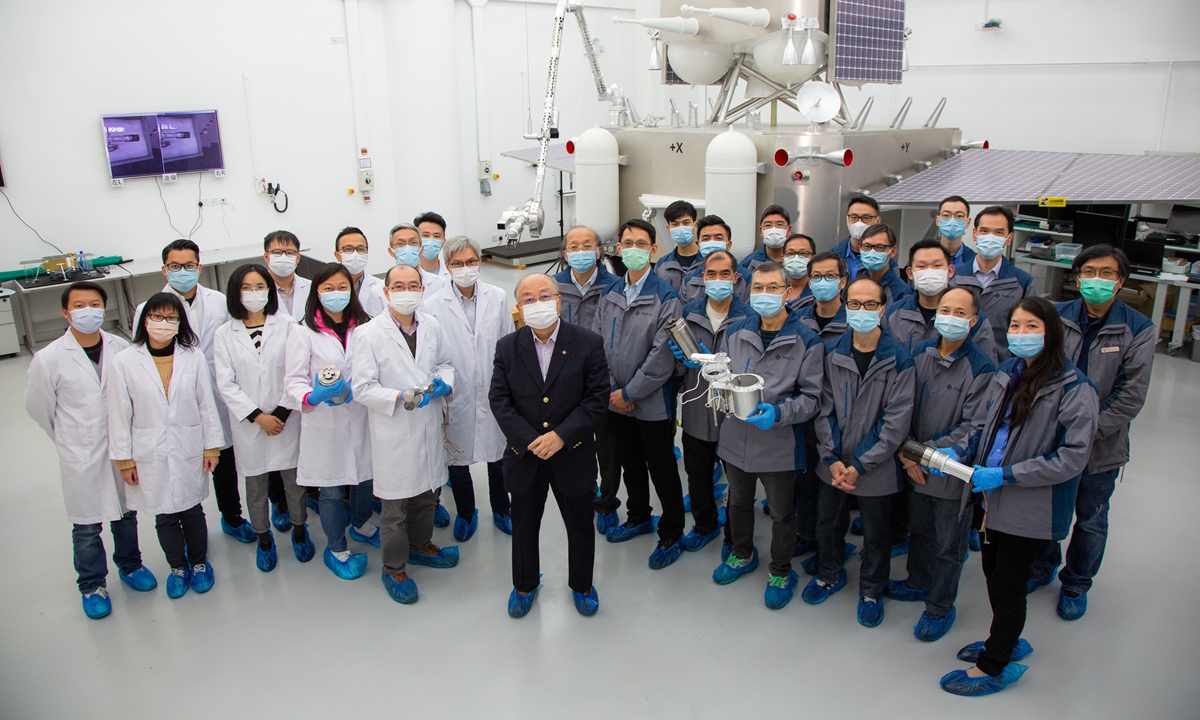
Professor Yung Kai-leung's team includes some 20 researchers with an average age of 30 to 40, and the youngest is only 21 years old. Some of them are still students at PolyU, and the majority are Hong Kong locals. Photo: Courtesy of Hong Kong Polytechnic University
A national "star team" of scientists from China's top space projects started its much-anticipated visit to Hong Kong schools on Wednesday. Responding to the warm welcome from young people in the city, scientists encouraged them to participate more in the aerospace effort of the country.
The team, which consists of the commander-in-chiefs and the chief designers of the country's Long March carrier rocket series, Shenzhou manned space programs, BeiDou Satellite Navigation System and the Tianwen-1 Mars mission, arrived in Hong Kong on Tuesday. They were scheduled to visit the Hong Kong Polytechnic University (PolyU), the University of Hong Kong (HKU) and six middle schools from Wednesday to Friday.
Experts pointed out that the warmly welcomed visit, especially at PolyU and HKU, which were turned into battlefields by rioters and tormented by violence and vandalism imposed by secessionists in 2019, sent a strong signal that the misunderstanding of the Chinese mainland's development held by some local intellectuals in Hong Kong is unwinding, and the young generation in the city is full of hope and passion to participate in the country's science advance.
Qi Faren, the first chief designer of China's Shenzhou spacecraft, gave a speech emphasizing the theme of China's aerospace spirit at PolyU on Wednesday, talking about the country's long path over the past 50 years to advance its aerospace development and achievement.
Hu Hao, the chief designer of the third phase of the lunar exploration program, also said during a speech at HKU on Wednesday that universities in Hong Kong are all highly regarded, and they are welcome to participate in the study of lunar samples.
Qi's speech was fully booked by students at PolyU, and it was livestreamed on many platforms, said PolyU President Teng Jin-guang. More than 5,000 viewers watched the speech solely through PolyU's WeChat livestream platform.
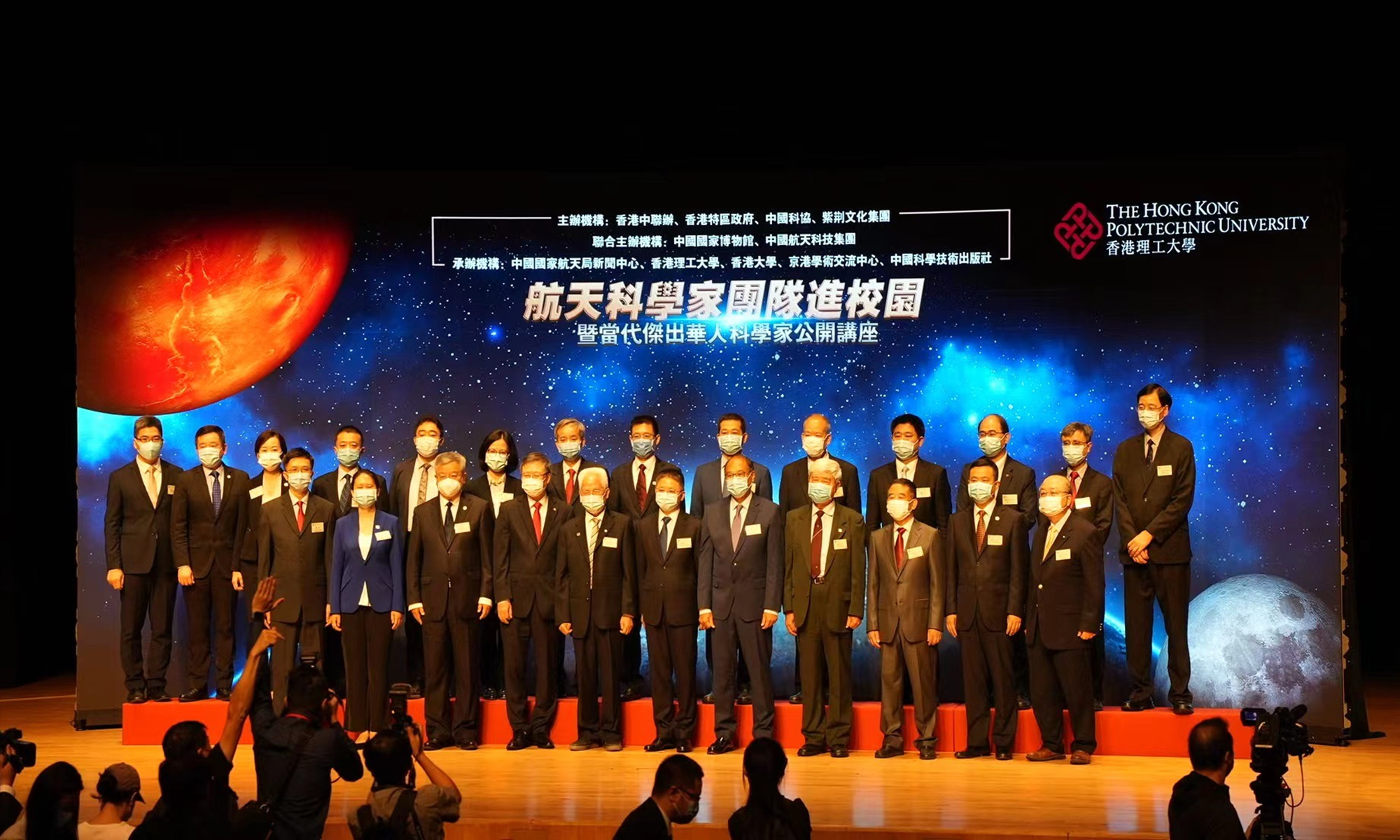
A national "star team" of scientists from China's top space projects started its much-anticipated visit to Hong Kong schools on Wednesday.
A staff member at PolyU told the Global Times on Wednesday that students engaged in rounds of opinion exchanges at the event with the aerospace giant, and they spoke highly of Qi's speech.
When hearing that many young Hong Kong people are interested in joining the national aerospace department, Qi pointed out that some of China's aerospace experts received their education in Hong Kong, and he encouraged interested students to join the country's aerospace program.
Lam Tai-fai, chairman of the PolyU Council, said in a statement the school sent to the Global Times on Wednesday that the event enables PolyU students to achieve a close understanding of China's space industry, and it will enhance their enthusiasm and interest in participating in national scientific research.
Professor Yung Kai-leung, who leads a research team at PolyU that developed and manufactured one of the key systems for the Chang'e-5 lunar sample return mission, told the Global Times on Tuesday that his team includes some 20 researchers with an average age of 30 to 40, and the youngest is only 21 years old. Some of them are still students at PolyU, and the majority is Hong Kong locals.
Yung and his research team developed the "Surface Sampling and Packing System," in collaboration with the China Academy of Space Technology (CAST). The system accomplished the tasks of automatic sample collection and packaging on the lunar surface, following the soft landing of the Chang'e 5 probe on December 1, 2020.
Yung recalled that in mid-November 2019, rioters left PolyU in chaos. A number of laboratories on campus were vandalized and dangerous chemicals were taken from the laboratories that might pose a serious threat of harm to the public.
The implementation of the national security law in Hong Kong has ended the history of Hong Kong's undefended security system. Many Hong Kong residents have said the people of the city feel more secure and free from harm by rioters and separatists who gang up with foreign forces, and the law is a gift that the motherland presented to the city.
Hong Kong rarely sees such a high-level expert group sent by the mainland, which indicates the high importance the visiting team has attached to the trip, Song Zhongping, a Hong Kong-based space analyst, told the Global Times on Wednesday. "It is a real 'universe-level' team," he said.
The national space scientists' visit could serve a strong role in unwinding the misunderstanding of the Chinese mainland's development held by some local intellectuals in Hong Kong, he said.
"Some of the younger generations in Hong Kong believe that in the fields of aerospace and such high-technology industries, China lags behind the West. But through such events, they will understand better that we have in fact caught up, to become one of the heavyweights in the world's aerospace development," Song noted.
Professor Yung said that his team will join the future Chang'e-6 mission in a similar quest for lunar samples, and new designs will be added to the old system to meet the new mission's requirements.
He added that his team would be ready for the country's call for future lunar missions including the Chang'e-7 and Chang'e-8, as well as Mars sample-retrieval quests and asteroid probe missions.
